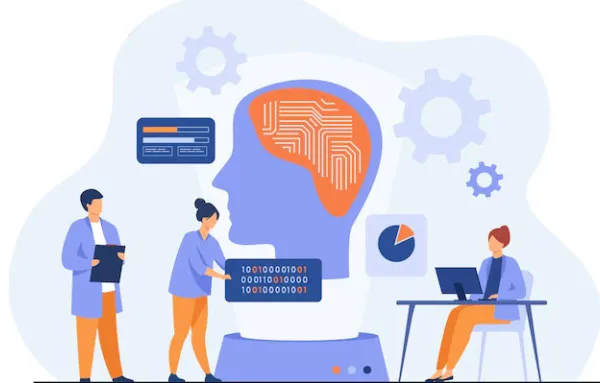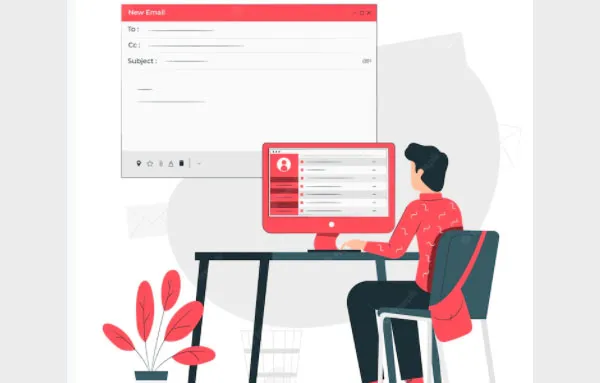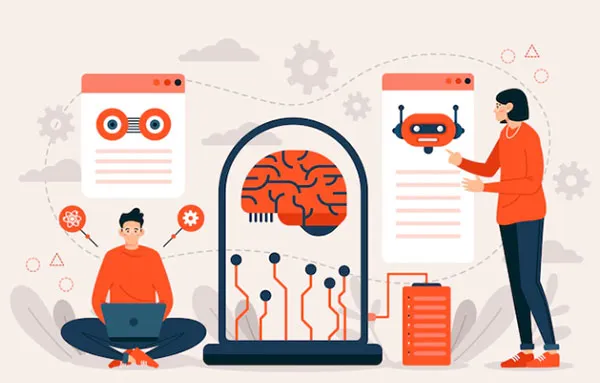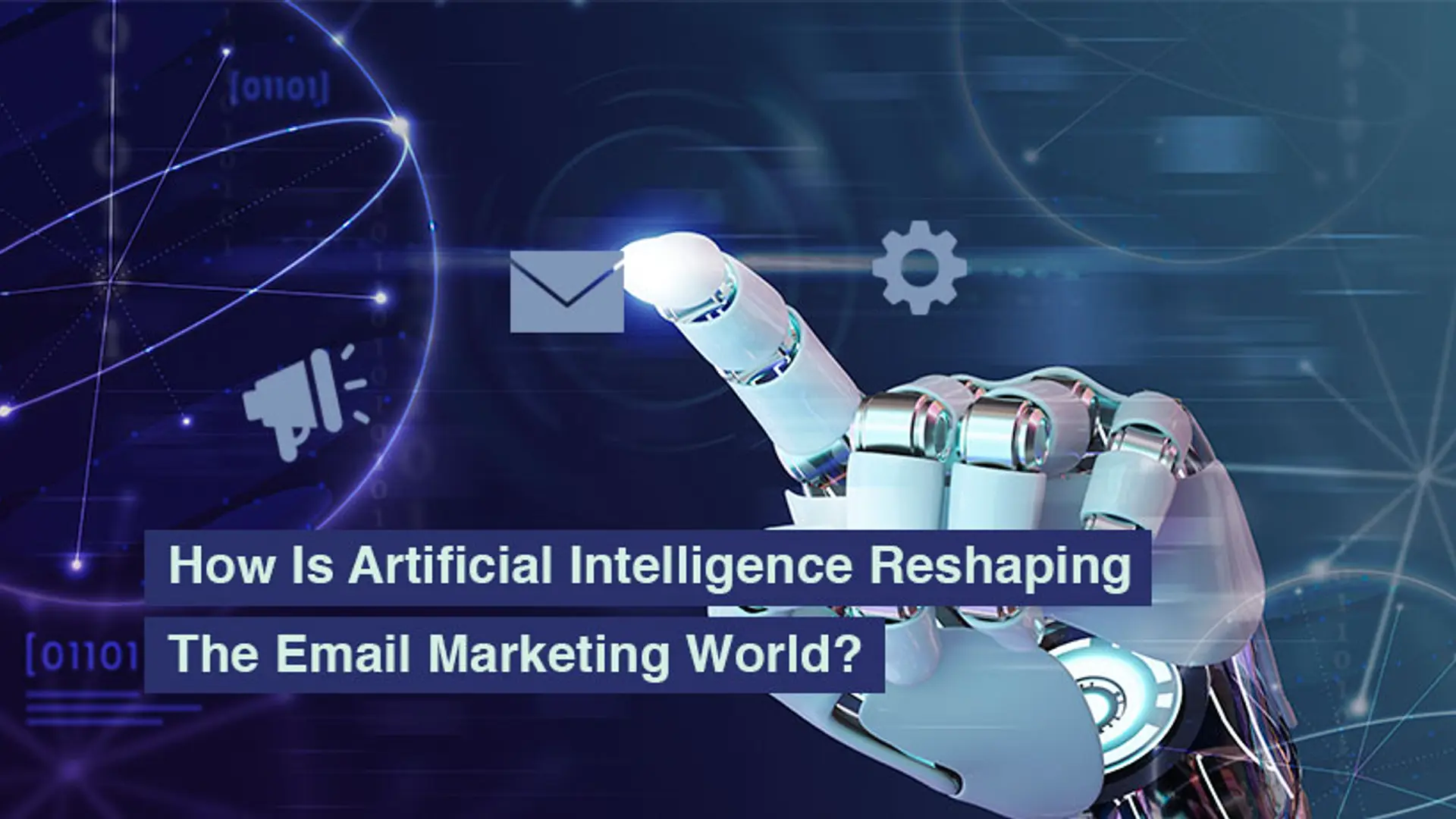
This is a user generated content for MyStory, a YourStory initiative to enable its community to contribute and have their voices heard. The views and writings here reflect that of the author and not of YourStory.

How Is Artificial Intelligence Reshaping The Email Marketing World?
Artificial Intelligence (AI) is not an alien concept anymore. It has been there in our lives for quite a long time, and today over 90% of the businesses are exploring it for their business requirements.

This is a user generated content for MyStory, a YourStory initiative to enable its community to contribute and have their voices heard. The views and writings here reflect that of the author and not of YourStory.

It's no secret that AI impacts the email marketing world. Implementing new technologies has made it easier to reach customers and tailor communications to their specific needs and wants, which has led to a large part of the change.
AI also has begun playing an essential role in helping businesses deliver personalized emails to their customers. This blog will look at seven ways AI redefines email marketing and some of its advantages.
1. Personalize Emails Using Past Behavior
Email open and click-through rates are higher when emails include personalized content, but creating customized emails for every customer can be time-consuming.
AI makes it easier to do this quickly, and at scale, so you can automatically tailor your email messages based on each customer's unique preferences. It helps you stand out from competitors who send generic emails to their entire list.
If you're using email marketing software like BayEngage, you don't need to worry about that. You can access dynamic email templates, whereas tools like Mailchimp do not. In which you may have to look for Mailchimp alternatives.
Here are some ways where AI can help in email personalization:
- Machine learning algorithms analyze which emails are getting opened and which are not. It helps in determining which audience should be sent and what kind of content.
- AI also helps marketers connect with the customers in real-time using virtual assistants like Alexa, Siri, Cortana, and Google Assistant.
- AI helps marketers boost their revenue by optimizing offers based on customers' past purchases and interactions, thus driving maximum sales.
- Last but not least, AI helps marketers identify vital factors affecting email click-through rate and conversion rate, thereby improving the overall ROI of the campaign.
2. Segment Emails Better With Machine Learning Algorithms

Email segmentation is a core pillar of email marketing. It identifies and groups your subscribers based on their interests, behaviour, and demographic attributes. It makes it easy for you to send them highly personalized messages that, in turn, generate more sales.
How Email Segmentation Works
You can manually segment your list, but that is tedious, time-consuming, and prone to human error. Many marketers are turning to artificial intelligence (AI) tools to automate the process.
How AI Helps
With the help of AI, marketers can segment their email lists based on data collected from existing customers. This data includes purchase history, browsing behaviour, and preferences.
The AI algorithm uses that information to create segments and deliver personalized emails to each one of them. There's no more guessing which products will appeal to a specific customer or what kind of content they will be interested in reading. With AI email segmentation, you can get it right every time!
3. Send Emails At The Right Time Using Predictive Analysis
The latest advances in Artificial Intelligence (AI) are driving the next generation of email marketing automation. AI makes a massive difference in how relevant, timely and personalized email campaigns can be. It is fueling exceptional open rates, click-through rates, and conversion rates.
The best time to send an email is when people are most likely to open it. But since everyone has different schedules and habits, what's most convenient for some may not work for others. It is where AI comes in.
With its ability to analyze individual data and make quick decisions, Artificial Intelligence can identify when someone is most likely to open an email and automatically send it at that time.
For example, AI can predict when your subscribers are most likely to be online and open your emails using machine learning algorithms. It enables marketers to schedule their emails at optimal times based on each subscriber's past activity patterns.
Since no two subscribers have the same habits and preferences, marketers can customize their timing based on each individual's unique practices.
4. Creating More Relevant Subject Lines

Subject lines form a crucial part of email marketing campaigns as they are often the first thing your subscribers see when they receive your emails. You need a catchy subject line that will attract your subscribers' attention and make them want to open your emails.
Subject lines are also important because they can get your emails delivered right into spam folders if they look spammy or misleading.
But most marketing emails are sent to thousands of people at once, and each recipient has a different set of interests, so it's not easy to come up with a subject line that will be relevant to everyone.
Artificial Intelligence (AI) can help solve this problem by using machine learning algorithms to analyze large amounts of data in a short time and find the best-performing subject lines for specific groups of people.
AI can help you personalize the subject line based on a recipient's past and current behavior, i.e., previous purchases, clicks on specific links, location, and other data points available within an organization's database.
For example, you can create a unique series of subject lines for baby boomers and another one for millennials, based on what worked best for these audiences in the past.
5. Accurate Analytics To Understand Results Better
When it comes to email marketing, there are a lot of factors that need to be considered and analyzed to get results. AI provides accurate analytics, which helps marketers understand the results better and work on them accordingly.
Companies such as Google, Facebook, and Amazon have invested millions of dollars researching AI technology. It helps to provide accurate analytics and make smarter decisions. AI technology enables companies to send personalized emails and offers to their customers accurately without human intervention and improve their email deliverability rate.
With email privacy becoming more and more of a concern, email marketers have to focus more on the deliverability of their emails. Here, you can use AI to help with data accuracy and duplication. It can also help validate email addresses after collection to ensure they are genuine and not just something a customer made up on their own.
AI can also help with data segmentation to ensure your emails are always getting to the right person at the right time to maximize your open rate.
Here's what TargetBay's CEO Pon Pandiyan had to say about our email deliverability services: "We have set up a separate email deliverability experts team for helping our clients improve their email campaigns' email deliverability rate based on the performance report that AI in BayEngage (TargetBay's email marketing software) gives."
AI leads to better email marketing results for your company. But before you decide to invest in AI for your company's email marketing strategy, you need to understand what it can do for you and how it works.
6. Artificial Intelligence-Powered A/B Testing

A/B testing helps marketers understand which email subject line and preview text would make the reader engage with their email. It also helps them find the best position of CTAs in an email.
Conventional A/B testing requires you to send two versions of your email, say version A and version B, to two different groups of subscribers. Once you receive the stats, you can analyze which one performed better and then pitch that one to the rest of your subscribers.
AI can help marketers get the best possible results from their A/B testing by automating these tests. The AI-based system creates multiple versions of emails based on data from past campaigns, demographic information of the audience, time zone, and a lot more.
It then automatically sends it to different groups of people, collects data, and finally suggests a winning combination. It saves time as well as helps marketers in getting better results.
It is essential as some recipients might respond better to a particular subject line or copy, while others might like something else.
7. Enhance Automated Workflow
Many emails are sent out every day, but how do you ensure your message gets noticed?
This is where Artificial Intelligence (AI) comes in handy. AI uses deep learning – a type of machine learning inspired by the brain's structure and functioning. Deep learning algorithms learn from large data sets, which help them identify patterns and make quick decisions.
AI allows for automated workflows, saving marketers the time-consuming work of manually creating custom audiences and scores. AI can provide automated workflow recommendations and allow more data to be processed, making a more connected and personalized journey for each customer.
AI also makes it possible to personalize email content on an individual level. By using AI to analyze a consumer's purchase history, interests, preferences, and more, marketers can create personalized customer journeys beyond just the subject line or the offer presented.
With the right machine learning solution, marketers can apply customer-specific data across their customer touchpoints in real-time.
With the advent of Artificial Intelligence in the email marketing world, we can expect to see a rise in communication and interaction between brands and consumers. AI is taking over the email world by storm.
Advantages Of Using Artificial Intelligence In The Email Marketing World
1. The uses of artificial intelligence in email marketing are not just limited to content creation and personalizing emails anymore.
2. The technology has advanced to a point where it is helping marketers identify, analyze, and target data-specific prospects with pinpoint precision.
3. With AI, you can uncover valuable data about your customers or subscribers, such as their demographics, spending habits, and interests, which can help you create a compelling message that gets them hooked on your product or service.
4. AI makes it easier to automatically insert dynamic content into emails based on subscriber preferences or past behaviour. For example, retailers can use dynamic content to display products that subscribers have previously shown interest in.
5. Marketers can use lead scoring tools powered by AI to determine the lead score of prospects based on specific criteria such as company size, industry, and location.
To Wrap Up Things!
Email is a powerful digital marketing channel that allows you to send personalized, real-time messages to a highly receptive list of leads, contacts, and subscribers.
Keeping up with the latest AI developments in email marketing has numerous benefits, like automating tedious processes and learning valuable customer insights.
By now, marketers have realized that AI can't replace them; rather, it enhances their ability to deliver excellent experiences. So, as AI empowers marketers with more intelligent automation functions and insightful analytics, email has never been more promising for business success.



